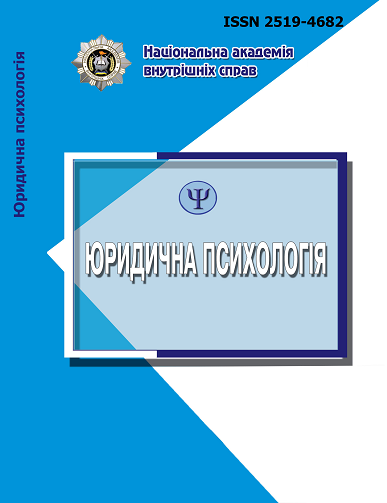Socio-Psychological Conditions for the Optimization of Pedagogical Communication
Keywords:
communication, pedagogical communication, style of pedagogical communication, multimedia presentation of lecture
Abstract
The article deals with pedagogical communication as a kind of communication of people, which has both general and specific features. Pedagogical communication simultaneously implements communicative, perceptual and interactive functions. The interactive side of communication is to organize the interaction. Effective pedagogical activity requires the organization of interaction in the form of cooperation, constructive conflict resolution. The communicative side of pedagogical communication is the exchange of information. It is important to use the whole set of verbal and nonverbal means. The perceptive side of communication is the accuracy of perception and establishment mutual understanding on this basis is especially important for teachers. The style of pedagogical communication should be distinguished: careful attention to the mental process of students; the presence of empathy; benevolence, position of interest; reflection of their activities as teachers. An important component of optimizing pedagogical communication is overcoming the difficulties or «barriers» of communication. A significant factor in increasing the accuracy of perception is the comprehension of the whole set of obstacles perception, awareness and evaluation of stereotypes of perception, as well as receiving feedback, which helps to correct communication. Socially-psychological training is used to improve the competence in communication. In order to study the effectiveness of pedagogical communication, an experimental lecture was conducted using a multimedia presentation (in a control group – without presentation). After the lectures, a control test was conducted. Methodological basis of the study were information and activity approaches. An informational approach allows us to focus on the study of communication channels. Activity approach focuses on the organization of the pedagogical communication process, its influence on keeping the attention, memorization. It is the task of facilitating memorization by systematizing the material, expanding attention in an experimental study of the use of multimedia presentations during lectures. The use of the presentation implies, in addition to the perception of the material by the hearing, also the visual perception of information structured in a certain way to facilitate memorization. As expected, as a result of the experiment, the use of multimedia materials contributed to maintaining attention during a lecture in an experimental group. However, the results of the control test showed a slight difference in the level of knowledge in the control and experimental group. Based on static data processing, the psychological hypothesis – the use of a multimedia presentation during the lecture improves the perception and memorization of educational material – has not found sufficient evidence. Thus, the ways of optimizing pedagogical communication and, in particular, using multimedia presentations need further study.Downloads
Download data is not yet available.
Abstract views: 183 PDF Downloads: 358
Issue
Section
Psychological support of law enforcement
- Authors reserve the right to authorship of their own work and transfer to the magazine the right of the first publication of this work under the terms of the Creative Commons Attribution License, which allows other persons to freely distribute published work with mandatory reference to authors of the original work and the first publication of an article in this magazine.
- Authors have the right to enter into separate additional agreements on non-exclusive dissemination of the work in the form in which it was published in the journal (for example, to post an article in the institution's repository or to publish as part of a monograph), provided that the link to the first publication of the work in this journal is maintained.
- The journal's policy allows and encourages the posting of articles by authors on the Internet (for example, in electronic storehouses of institutions or on personal websites), both before the submission of this manuscript to the editorial office and during its editorial processing, as this contributes to the creation of a productive scientific discussion and positively affects the efficiency and dynamics of citing the published work.




